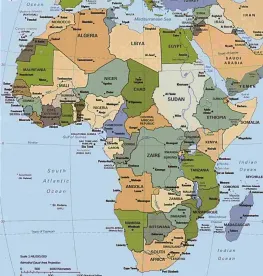U.S. exports to Africa have increased substantially over the last several years. A U.S. Department of Commerce report showing the top U.S. trade partners shows a 27.1 percent increase in exports to Nigeria in the last year alone. In contrast, other regions of the world show a negative growth in exports from the U.S., including the United Kingdom (-13.7 percent) and Japan (-6.8 percent). While the report does not specify the products being exported, the dramatic rate of increase may be the result of a rise in Africa’s infrastructure development and its continuing emergence as a consumer market. The increased focus on development in Africa has also resulted in local government interest in developing local workforce participation in major industries. As a result, companies with a presence in Africa will likely experience higher levels of scrutiny with regard to their immigration activities – particularly as it pertains to foreign work force policies and compliance with regulations.
A recent example of this increased scrutiny occurred in Ghana, when the government enacted more rigorous recruitment requirements for employers in the oil and gas industry in early September. Employers in this industry will now be subject to more recruitment requirements to justify the need for a foreign worker to fill a position rather than a Ghanaian citizen. The Ghanaian government seeks to increase opportunities for local workers by first requiring employers to recruit qualified local workers before hiring foreigners to fill positions. Work permit applications and renewals will also require employers to submit succession plans and training plans to demonstrate how positions will be transferred to local Ghanaian workers if and when the foreign workers leave their positions. Employers in the oil and gas industry have also experienced site visits to ensure foreign workers have the proper work permits in Angola. Companies in the oil and gas industries can expect this pattern of increased scrutiny and enforcement in the form of immigration legislation and site visits to ensure compliance on a broader scale throughout Africa.


 />i
/>i

